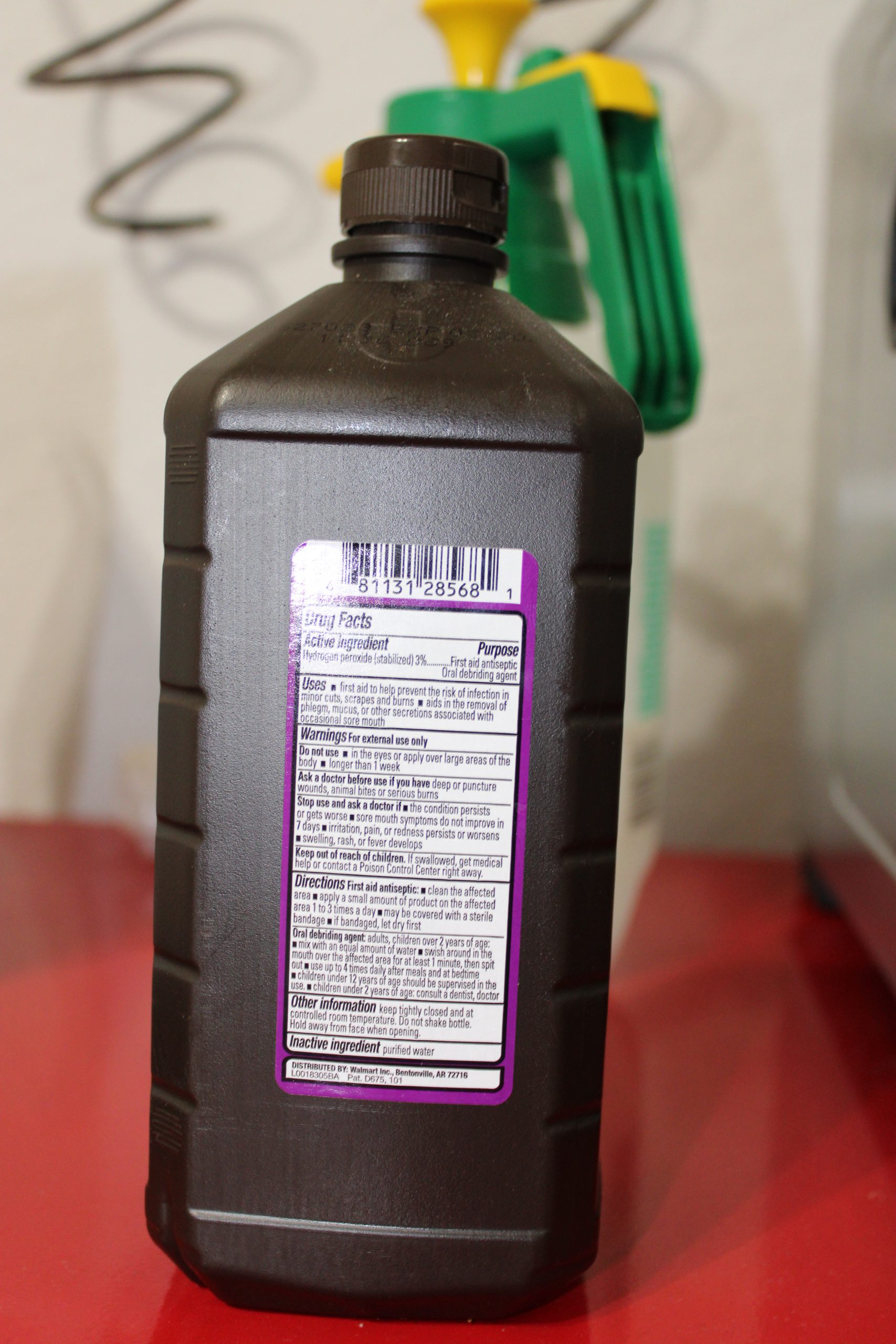Here we are on the Second Day of Christmas. Today, my true love gave to me, a bottle of 3% Hydrogen Peroxide. We can save the debate, if my true love gave me a 98 cent bottle of antiseptic for Christmas, is she my true love? Instead we should ask if something so ubiquitous and industrial is organic. So is Hydrogen Peroxide Organic?
How I Use It.
Before we get the organic or not part of the post, let look at how I use it. First, My main purpose is to try to control the disease growth on my plants. My secondary purpose is mold control on seed. The final purpose is to weaken the seed coating of seed that may need help sprouting. You can see me do this in my Chinese pepper seeds post.
I use a 2-3 tablespoon strength dose in a half gallon sprayer for disease control. Honestly, I should spray more often than I do but most of the time, it only saves a bit of time before the heat gets to my plants anyway. In an ideal world, I would spray every 2 to 3 days. As a general rule of dosing, start with less and add more as needed so I would actually start with 1 tablespoon because your climate might have difference that change the toughness of your plants. If that does not work then move to 1.5, 2, 2.5 , 3 as needed. Once you figure it out, you can blast away as merry as Santa on Futurama.
Why that schedule?
It is tied to the fact that I am not adding a surfactant to the spray like soap. Too much and you potentially decrease the amount of photosynthesis the plant can do because you added a layer of soap onto the leaves. The second reason is that hydrogen peroxide is not very stable. It loves to turn into water. As part of the breakdown process, many disease get damaged. It is not great for the leaves but they are tougher than the disease. The water will then foliar feed the leaves a bit. It’s an extra bonus.
Hydrogen Peroxide Organic?
So here is the thing. We have the OMRI that produces lists that defines what is and what is not organic. Here is what their list has to say about organic and hydrogen peroxide.
For use as a plant disease control or as an
algicide, disinfectant, or sanitizer. May only
be used if the requirements of 205.206(e) are
met, which requires the use of preventive,
mechanical, physical, and other pest, weed,
and disease management practices. For use
as an inert ingredient in passive pheromone
dispensers
https://www.omri.org/sites/default/files/opl_pdf/CropByCategory-NOP.pdf
It has all the elegance of Supreme Court Brief. I am using my hydrogen peroxide as a plant disease control. So we are good. Right?
Well not so much. See the 205.206(e) part requires that certain things be done. One of those things is crop rotation. Why you have to rotate your crops to use a substance that is considered organic, I have no idea. But the reality is that you do.
I don’t actively rotate my crops. If disease pops up and wipes out something then I will move it. The thing is that I dump a bunch of compost on the ground every year. I bury a bunch of the pests. Most of the disease that I run into is present in all the soil on my property. It does not matter if I plant tomatoes in a different bed. The new soil contains blight. There is no hope of a powdery mildew free cucumber because all my soil contains powdery mildew spores. As a result, I don’t worry about it unless something bad happens.
I have been waiting for 15 years for something bad to happen. But because I am not doing this, my organic treatment is not organic.
So there you have it. Hydrogen peroxide is organic unless it is not. The disease reduction is the same both ways. The application is the same both ways. But one is and one isn’t. You got to love those rascally bureaucrats.
